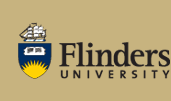
The Bachelor of Nutrition and Dietetics requires four years of full-time study. The course is offered by the Faculty of Health Sciences.
An honours degree can be completed in four years by undertaking additional units, including a research project at honours level, in Year four.
The minimum requirements for consideration for entry to all undergraduate courses are specified in detail in the University Entry Requirements.
Some places are available to students who have completed at least two years of an approved degree with a GPA normally of at least a credit average, and which is inclusive of studies in biochemistry and physiology to at least Second Year. These students are granted two years of credit and begin the program of study at Third Year.
Applicants applying for Third Year entry must submit with their application a statement outlining their interest in the course and profession, and evidence of any relevant employment experience. Applicants will be ranked for admission on the basis of a selection score which is a combination of academic merit (70%) and assessment of their statement of interest and experience (30%).
This course aims to educate professionals who are able to apply scientific principles and integrate knowledge and skills of nutrition, dietetics and other human sciences in order to promote health and prevent illness in communities and individuals.
The first two years of the course introduce students to the behavioural and biosciences which they will progressively apply to the study of food and nutritional sciences, including the study of social and ecological issues in relation to food. In the final two years there is increasing exposure to professional nutrition and dietetic practice, including at least 21 weeks of supervised placement.
This course, accredited by the Dietitians Association of Australia, prepares graduates for employment in a wide variety of settings including: patient care and education in hospitals, Food Service, nutrition and health education in community health services, Public Health nutrition, food and nutrition policy, private practice and consultancy, education and training, food industry, Health Promotion and nutrition research.
This course is founded on teaching and learning practices designed to encourage life long learning in the practice of nutrition and dietetics.
At the completion of the course, students are expected to have
To qualify for The Bachelor of Nutrition and Dietetics a student must complete 144 units with a grade of P or NGP or better in each topic, according to the following program of study. Except with the permission of the Faculty Board:
BIOL1102 Molecular Basis of Life (4.5 units)
HLTH1304 Communication for Health Practitioners (4.5 units)
NUTD1105 Food Systems (4.5 units)
NUTD1106 Nutrition, Physical Activity and Health (4.5 units)
Select either CHEM1101 & CHEM1102, or CHEM1201 & CHEM1202
CHEM1101 Chemistry 1A (4.5 units)
CHEM1102 Chemistry 1B (4.5 units)
CHEM1201 Introduction to Chemistry A (4.5 units)
CHEM1202 Introduction to Chemistry B (4.5 units)
Plus 9 units of elective topics from the Elective - Year 1 & 2 list
BIOL2771 Biochemistry (4.5 units)
MMED2931 Human Physiology (4.5 units)
MMED2932 Integrative Human Physiology (4.5 units)
MMED3933 Biochemistry of Human Disease (4.5 units)
NUTD2101 Nutrition Across the Lifecycle (4.5 units)
NUTD2102 Food Products and Preparation (4.5 units)
NUTD2105 Social & Ecological Perspectives on Food Choice (4.5 units)
Plus 4.5 units of elective topics from the Elective - Year 1 & 2 list
DSRS1202 Lifespan Development (4.5 units)
DSRS1206 Health Issues and Disability (4.5 units)
DSRS1209 Human Diversity (4.5 units)
DSRS1210 Interpersonal and Group Skills (4.5 units)
ESOL1101 English as a Second Language 1 (4.5 units) International students only
HLTH1003 Legal and Ethical Aspects of Health Care (4.5 units)
HLTH1004 Human Bioscience (4.5 units)
HLTH1101 Health Promotion for Health Professionals (4.5 units)
HLTH1305 Health Practitioner Practice 1 (4.5 units)
HLTH1306 Health Practitioner Practice 2 (4.5 units)
MMED1005 How Your Body Works: Human Physiology and Structure (4.5 units)
PSYC1101 Psychology 1A (4.5 units)
PSYC1102 Psychology 1B (4.5 units)
or other elective topic approved by the Course Coordinator.
NUTD3101 Fundamentals of Nutritional Epidemiology (4.5 units)
NUTD3102 Nutrients Role and Function (4.5 units)
NUTD3103 The Nutrition Care Process (4.5 units)
NUTD3104 Communication and Nutritional Counselling (4.5 units)
NUTD3106 Clinical Nutrition and Dietetics (9 units)
NUTD3107 Public Health and Community Nutrition (4.5 units)
NUTD3108 Professional and Organisational Management (4.5 units)
NUTD4101 Food Service: Theory and Practice (4.5 units)
NUTD4102 Research Methods & Skills in Evidence Based Nutrition Practice (9 units)
NUTD4106 Independent Studies in Nutrition and Dietetics (4.5 units)
NUTD4107 Clinical Placement in Nutrition and Dietetics (9 units)
NUTD4108 Community/Public Health Placement in Nutrition and Dietetics (9 units)
Prima facie evidence of unsatisfactory progress for the purposes of the University's Policy on Student Progress may be constituted by:
Students who have completed Year 3 of The Bachelor of Nutrition and Dietetics to a sufficiently high standard may be invited to enrol in The Bachelor of Nutrition and Dietetics (Honours) program in Year 4. Other students may be admitted at the discretion of the Faculty Board, subject to specific conditions. Enrolment in the honours program is subject to the school/department being able to provide appropriate resources and staff to supervise the program of study. Students who are accepted into the Honours program will be required to satisfactorily complete 42 units in the following program of study in Year 4.
CRICOS Provider: 00114A | Updated: 25 Oct, 2011